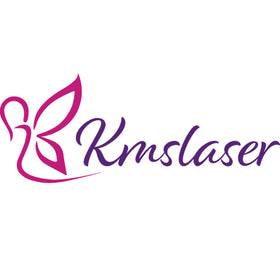In recent years, shockwave therapy has gained significant attention as a non-invasive treatment for various musculoskeletal conditions. However, one common question many patients ask is: Is shockwave therapy covered by insurance? Understanding the nuances of insurance coverage can be complicated and varies from one policy to another.
Shockwave therapy is an innovative treatment that uses acoustic waves to stimulate healing in damaged tissues, alleviate pain, and promote recovery. However, many individuals hesitate to pursue this therapy due to potential costs. This situation can lead to frustration and confusion about whether insurance will help mitigate expenses. The problem is that while shockwave therapy can be beneficial, not all insurance plans recognize it as a medically necessary procedure.
Yes, insurance coverage for shockwave therapy depends on various factors, including the specific insurance plan, the condition being treated, and whether the provider is in-network. Generally, insurance companies are more likely to cover shockwave therapy when it is used for chronic pain conditions, such as plantar fasciitis, tendonitis, and certain musculoskeletal disorders. However, if the treatment is considered experimental or for cosmetic purposes, coverage may be denied.
As healthcare continues to evolve, so too do the policies surrounding treatment coverage. Many insurers now recognize shockwave therapy as a viable option for treating specific conditions, leading to an increasing number of patients gaining access to this effective treatment. If you're considering shockwave therapy, it’s essential to consult your healthcare provider and your insurance company to clarify your coverage options.
Now that we've addressed the fundamental question, let's delve deeper into some critical aspects of shockwave therapy and its coverage.
Frequently Asked Questions
-
What types of conditions are eligible for shockwave therapy coverage? Insurance companies often cover shockwave therapy for conditions like plantar fasciitis, tennis elbow, and calcific shoulder tendinopathy. If a medical professional deems it necessary for your treatment, you are more likely to receive coverage.
-
Do I need pre-authorization for shockwave therapy? Many insurance plans require pre-authorization before covering shockwave therapy. This means your healthcare provider must submit documentation that details the necessity of the treatment and any previous therapies that have been attempted.
-
What are the potential out-of-pocket costs? Even with insurance coverage, patients may face out-of-pocket costs, including deductibles and co-pays. It's crucial to review your specific policy to understand your financial responsibilities.
-
How can I increase the likelihood of insurance coverage? Providing thorough documentation, including treatment history and letters of medical necessity from your healthcare provider, can help facilitate the insurance approval process.
-
Are there specific insurance providers that are more likely to cover shockwave therapy? Coverage can vary widely between insurance providers and even between plans offered by the same company. It's advisable to check with your insurer to understand their specific policies regarding shockwave therapy.
In conclusion, shockwave therapy can be a highly effective treatment for a range of musculoskeletal conditions, and insurance coverage is often available, though it varies by plan and condition. To maximize your chances of receiving coverage, consult your healthcare provider for proper documentation and communicate directly with your insurance company for clarity on your specific situation.
If you're considering shockwave therapy, don’t hesitate to reach out for more information on how it can help you manage pain and improve your quality of life. Contact us at KMSLASER for professional advice and to explore our top-quality treatment options.




